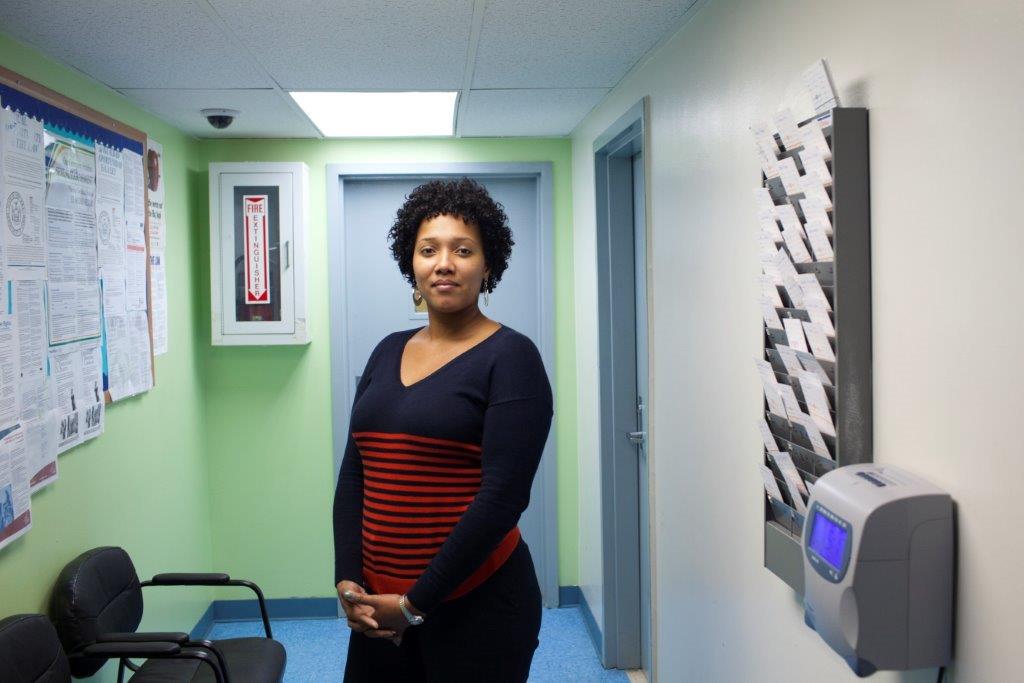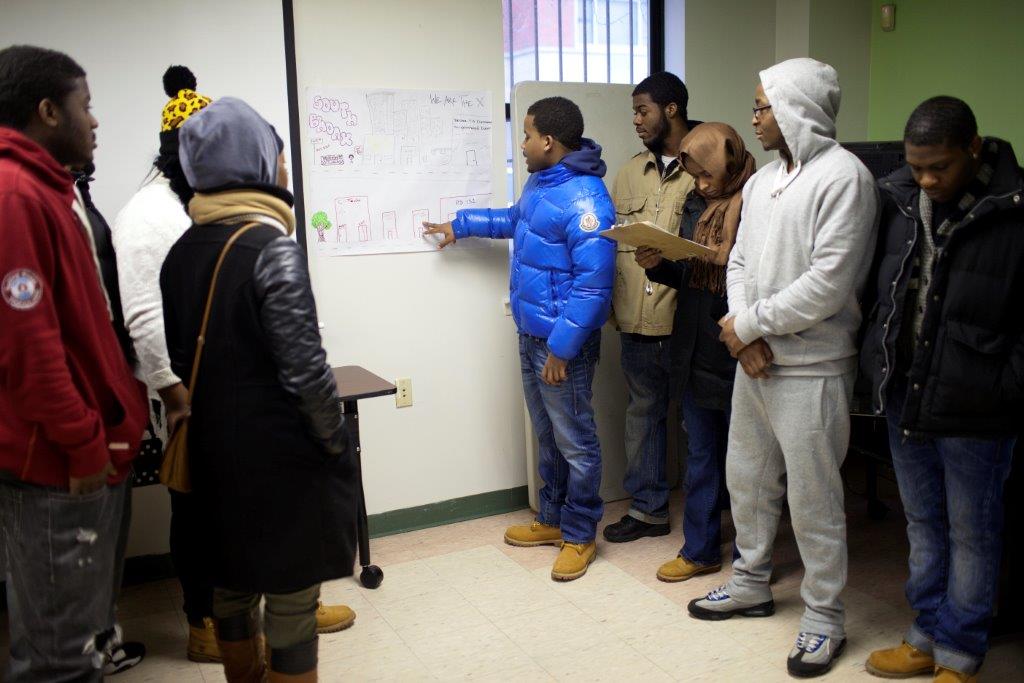Former Staff
Monique De La Oz—Phipps Neighborhoods, Director of Career Services (former Bronx Justice Corps Program Director)

“Young people with promise”
Making a difference in the South Bronx The South Bronx is the most impoverished neighborhood in New York City…We’re making an impact in these ten zip codes. We’re making sure that our young people are connected with community resources, education and workforce development. That’s our strategy and our model to support community members towards self-sufficiency.

Bronx Justice Corps members
What does it mean to eradicate poverty?
We’re taking young people that are court-involved. This population is one of the hardest to serve. The city has used words such as disadvantaged, disconnected, impoverished, vulnerable youth. For me, these are young people with promise. These are young people who have an opportunity, and may not know what their passion is.
When you ask me, ‘What does it mean to eradicate poverty?’ it isn’t just about getting a young person to get an internship and a job. It’s really about those wrap-around services: housing, childcare, food, clothing. Think about Maslow: the basic fundamental human needs are what we try to address, and then from that you can focus on school.
What makes the Justice Corps program unique in eradicating poverty is that the young people are also giving back to the community. The way that we do it at our site [in the South Bronx] is that we do community mapping and service learning activities where the [young people] actually go out into the community, and they have to get to know the community here. And they get to know the business owners, and ask them what the needs are in the community, and then they select where they want to work…
We have so many CBOs, churches, and parks we’ve made an impact in. When you look at it from a birds-eye perspective, you can see all the places we’ve made impact and touched lives, real lives. Community impact is the way to invest in the future.
Giving young people the tools
I figure that as a professional woman, if I’m going to make an impact, let it be where it’s needed most.
These young people are growing up by themselves. They’re raising themselves in the streets. The gangs are raising them. And then they come here…It’s our job to work with the young people to help them figure out what it is that they want to do, and where is it that they want to go. If you’re ready to change your life, you can transform it. We’re just going to give you the tools and resources to make it happen. We’ll be the support base for you, but ultimately, I can’t want it more than you. We’re here to assist them in making that change. Some young people don’t think about goal-setting. They’re not thinking about tomorrow, six-months from now, a year from now. That’s part of what we’re trying to help them do in the timeframe that they’re with us…
Our young people are here because they’re ready to take care of themselves…They woke up one day and said, ‘You know what? I’m ready. I’m not coming because my probation officer told me to come. I’m coming because I really want to make a difference.’
